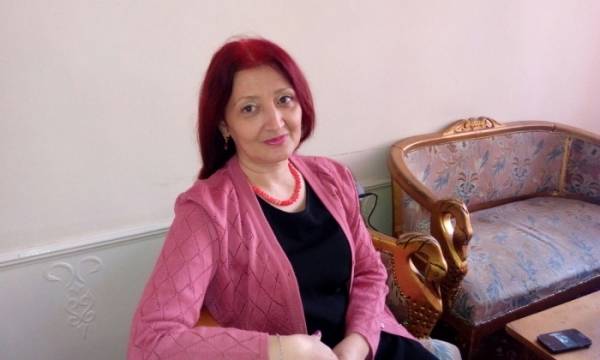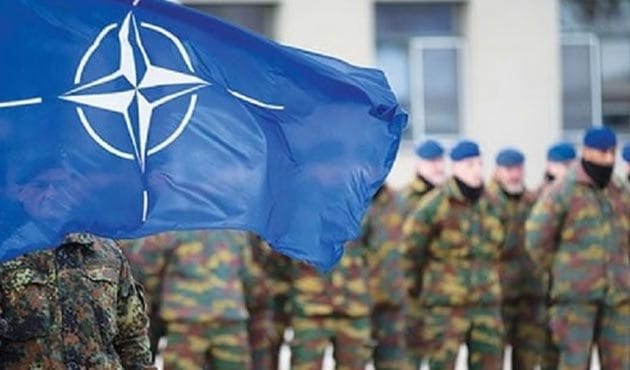Thursday’s vote by a Congressional committee condemning the deaths of up to 1.5 million Armenians during World War I as “genocide” is almost certain to complicate U.S. ties with Turkey, a long-time strategic ally and increasingly influential player in the Middle East and central and southwest Asia.
The 23-22 vote by the Foreign Affairs Committee of the House of Representatives prompted the immediate recall of Turkey’s ambassador here and an announcement by Ankara that ratification of a pending U.S.-backed treaty with Armenia will be frozen.
And the government of Recep Tayyip Erdogan, which sent several senior Turkish lawmakers and hired a high-priced public relations firm, as well as a former House speaker, to lobby against the resolution, is likely to take much stronger measures if it reaches the House floor later this year, according to both U.S. and Turkish analysts.
“We are seriously concerned that the adoption of this draft resolution …will harm Turkey-U.S. relations and impede the efforts for the normalization of Turkey-Armenia relations,” the Turkish embassy said in a release after the vote.
“This decision, which could adversely affect our cooperation on a wide common agenda with the United States, also regrettably attests to a lack of strategic vision,” it added.
After maintaining silence about the resolution for several weeks, the administration of President Barack Obama came out against it just hours before the vote – apparently too late to affect the final outcome, according to a number of lawmakers.
“We do not believe that the full Congress will or should vote on that resolution and we have made that clear to all the parties involved,” Clinton said during a press conference in San Jose, Costa Rica, Thursday morning in the administration’s first official statement on the issue.
The administration, which needs Turkey’s support on a slew of key issues, ranging from Arab-Israeli peace to Iran and Afghanistan, is likely to lobby hard against any effort by lawmakers to bring the resolution to the floor, despite the fact that both Obama and Clinton promised to support some version of it during their 2008 presidential primary campaigns.
At least half a million U.S. citizens, many of them concentrated in the electorally powerful state of California, claim Armenian ancestry.
The Armenian-American community, which is among the wealthiest and best organized of the many U.S. ethnic minorities, has long sought recognition of the 1915 death toll as a genocide. In 1975 and again in 1984, it succeeded in getting such resolutions passed by the House, although never in the Senate.
In 2007, the Foreign Affairs committee approved a similar “genocide” resolution. However, it was never referred to the floor of the House due to intense opposition by the administration of President George W. Bush backed by the powerful “Israel Lobby,” which has frequently intervened in Congress on behalf since the late 1980s when Ankara and Israel began building a strategic alliance.
But Israeli-Turkish ties have become increasingly strained in recent years, particularly since Israel’s “Cast Lead” military campaign in Gaza, which Erdogan strongly denounced in a heated exchange with Israeli President Shimon Peres at the World Economic Forum in late January last year, just days after the offensive had ended.
A number of subsequent incidents, most recently the apparently deliberate televised humiliation in January by Israel’s deputy foreign minister of Ankara’s ambassador in Tel Aviv, have added to the strains.
Indeed, some analysts here and in Turkey suggested that the resolution’s passage was due as much to the Israel Lobby’s failure to oppose it, as to the Obama administration’s delay in coming out against it. Several key lawmakers who are considered close to the Lobby, notably Gary Ackerman, Brad Sherman, and committee chair Howard Berman, spoke in favor of its approval.
“In the past, the pro-Israel community has lobbied hard against previous attempts to pass similar resolutions, citing warnings from Turkish officials that it could harm the alliance not only with the United States but with Israel…,” noted the Jewish Telegraphic Agency (JTA) Friday.
“In the last year or so, however, officials of American pro-Israel groups have said that while they will not support new resolutions, they will no longer oppose them, citing Turkey’s heightened rhetorical attacks on Israel and a flourishing of outright anti-Semitism the government has done little to stem,” it asserted.
The resolution, which was introduced by a California Democrat, calls on the president to use the annual presidential statement on the 1915 mass deaths next month to “accurately characterize the systematic and deliberate annihilation of 1,500,000 Armenians as genocide.”
Turkey has argued that the Armenian deaths were a great tragedy played out under the chaotic conditions of World War I when the collapsing Ottoman Empire was under attack on many fronts, including internally in the form of a Russian-backed Armenian insurgency.
Unlike most of its predecessors, the Erdogan government has indicated a willingness to review the events of that time, possibly even in cooperation with Armenia with which it agreed only last September to establish diplomatic relations and re-open borders that have been closed since 1993.
It was hoped that that agreement, which was mediated by Switzerland with strong backing from Washington, would be quickly ratified by both countries and lead to the resolution of the territorial dispute between Armenia and oil-rich Azerbaijan over the Armenian enclave of Nagorno Karabakh.
Despite U.S. urging – most recently in a conversation between Obama and Turkish President Abdullah Gul Wednesday – Erdogan has insisted that implementation of the treaty is dependent on progress in resolving the territorial dispute. Ankara’s decision to freeze the ratification process in the wake of Thursday’s committee vote here could deal a lethal blow to the treaty’s prospects.
In the four years since the committee last voted out a genocide resolution, Turkey’s strategic importance to Washington has significantly increased.
In addition to having the largest army among the European members of NATO and having recently increased its troop contribution to U.S.-led forces in Afghanistan, Turkey continues to permit the U.S. access to key military bases on its territory, provides critical supply routes to Iraq, and acts as an increasingly important transit route – bypassing both Russia and Iran – for Caspian and Central Asian oil and gas.
Ankara’s influence and involvement in the Arab world, particularly in Iraq and Syria, have grown sharply in recent years, and its friendly ties with Iran have positioned itself as a potential mediator between Tehran and the West.
Turkey has thus far resisted U.S. pressure to host a radar base that would be part of larger regional defense network designed to intercept Iranian missiles and to vote for stronger economic sanctions against Tehran on the U.N. Security Council, of which it is a member.
Some sectors, particularly those most closely associated with Israel here, have become increasingly concerned about Turkey’s growing orientation toward the Muslim world under Erdogan, who heads the Islamist Justice and Development Party (AKP), in both its foreign and domestic policies.
Indeed, neoconservatives, whose views often reflect those of Israel’s Likud Party, have been attacking Erdogan and the AKP with growing fervor in recent months, accusing them of a systematic effort to weaken Turkey’s traditionally secular institutions, notably the once-dominant armed forces.
In a column coincidentally published Friday by the neoconservative Wall Street Journal, Soner Cagaptay, a Turkish-born specialist at the Washington Institute for Near East Policy (WINEP), accused Erdogan of transforming Turkey into a “police state.”
At the same time, hard-line neo-conservatives, such as the Jewish Institute for National Security Affairs (JINSA) and the Journal’s editorial board, opposed the genocide resolution precisely because of fears that it will serve only to further poison bilateral relations with a country whose geo-strategic importance to Washington and its Israeli ally is simply too great.
www.antiwar.com






